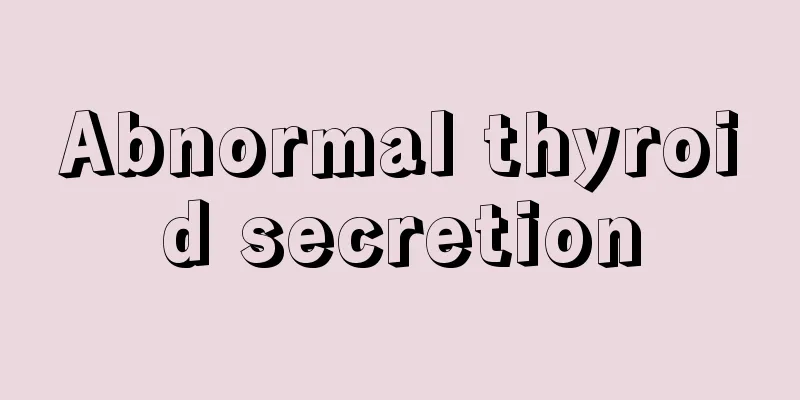What are the signs of brain cancer?

|
When it comes to tumors, many people are terrified, especially brain tumors. In fact, many brain tumors can be cured now, so we must face them correctly, detect them early, and treat them in a timely, correct and standardized manner. So, what are the signs of brain cancer? Symptom 1: Morning headache Many brain tumors often cause morning headaches, even accompanied by nausea. The headache is often worst when waking up from a night's sleep and will gradually ease after getting up. General headaches can be relieved in the afternoon. If it is a frequent symptom, it is very necessary to do a head CT or MRI examination to rule out the possibility of a tumor. Symptom 2: Projectile vomiting Brain tumors cause increased intracranial pressure and lead to vomiting, which usually occurs when there is a severe headache. The headache may be relieved after vomiting, so you should pay attention to it. Sign 3: decreased vision, double vision In the early stage, it may be temporary blackout and short-term vision loss. As the disease worsens, it gradually becomes a persistent vision loss, and may eventually lead to complete blindness. Diplopia: The images of the two eyes cannot overlap, and any object appears as a double image. Diplopia initially only occurs when the eyes are looking in a certain direction, and then it can develop to occur in any direction. Finally, when the positions of the two eyes are significantly asymmetrical, the diplopia can be reduced or even disappear. Many patients often first visit the ophthalmology department when they have eye diseases, but if the above symptoms occur, the possibility of cranial and brain lesions must not be ignored. Symptom 4: Visual field loss It usually presents with bitemporal hemianopsia, which can hinder the patient's behavior in severe cases. Symptom 5: Bulging of one eye That is, one eyeball protrudes forward, which may affect the eyelid in severe cases, causing palpebral fissures and incomplete eyelid closure. 50% of cases of unilateral eyeball protrusion are caused by intracranial diseases, the most common cause of which is brain tumor. Symptom 6: Unilateral deafness If middle-aged people have no history of otitis media and trauma, and only have progressive hearing loss on one side, with or without tinnitus on the same side, it is mostly caused by tumor compression of the auditory nerve. Some patients also have damage to the facial nerve. Symptom 7: Epileptic seizure If epileptic seizures occur without any cause, an intracranial tumor should be considered first. If the seizure is limited to one side or starts from a limb, a brain tumor should be considered in both adults and children. Symptom 8: Hemiplegia There are two different situations: one is hemiplegia or hemiplegia, which is characterized by less or no movement of the affected limbs; the other is unilateral limb ataxia, which is characterized by clumsy or unstable movements. If these two symptoms appear slowly and gradually worsen, they may be signs of brain tumors. The former is more common in cerebral hemisphere tumors, while the latter is a sign of cerebellar hemisphere tumors, which need to be distinguished from stroke. Sign 9: Acromegaly It is a unique clinical sign of pituitary tumors, seen in adults, with the main manifestations being thick and enlarged hands and feet, prominent brow arches and mandible, and ugly appearance. Children with the disease may develop into giants. Sign 10: Amenorrhea and lactation Amenorrhea and lactation in non-pregnant women of childbearing age are often the first symptoms of pituitary tumors. In men, the main symptoms are impotence and loss of pubic hair, axillary hair, beard, etc., and thickening of subcutaneous fat. For patients with brain tumors, early detection, diagnosis and treatment are the key to improving the treatment effect of patients. Many patients do not pay attention to some subtle changes in the body in the early stage. In fact, these all indicate the occurrence of the disease. If you have the above ten symptoms, you must go to the hospital as soon as possible. |
<<: What is the best diet for bladder cancer chemotherapy
>>: What are the signs of death in the late stage of bladder cancer
Recommend
How to treat acne on the neck, this is the best way
The hot summer is here again. Due to the vigorous...
How to treat bile duct cancer with traditional Chinese medicine
Because the location of bile duct cancer is relat...
Looking at sub-health from the perspective of hair
Thinning hair: It could be a sign of too much or ...
Why do patients with advanced pancreatic cancer always have stomachaches
Why do patients with advanced pancreatic cancer a...
What to do if you have a stuffy nose and runny nose due to a cold in summer
In life, the most common disease we encounter is ...
The correct way to sharpen a kitchen knife
The correct way to sharpen a kitchen knife, the c...
How to fundamentally prevent the occurrence of lymphoma
In daily life, cancer is extremely harmful to the...
Drugs that are sensitive to E. coli
Many people may not be so clear about the drugs t...
Men should be alert to the following 3 situations when urinating, which may be signs of prostate cancer
When it comes to cancer, many people are afraid a...
How to wash ink dropped on clothes?
In our daily life, the clothes we wear are clean....
The incidence of cervical cancer is high
Higher incidence of cervical cancer Cervical canc...
What is the conventional diagnosis method for tongue cancer
What is the conventional diagnosis method for ton...
What are the methods to sober up?
Nowadays, people often need to drink. When they a...
What are the possible causes of laryngeal cancer
The causes of laryngeal cancer are very common in...
What to do if blisters grow in the nose
Blisters in the nose are also a common symptom. T...









